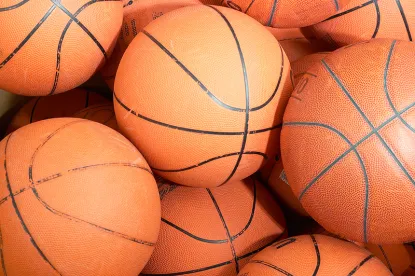“Close some doors today. Not because of pride, incapacity or arrogance, but simply because they lead you nowhere.” This quote (attributed to Brazilian author Paulo Cuelho) comes to mind with last month’s filing of yet another lawsuit, Livers v. NCAA, by a college athlete who alleges that playing a college sport is work such that he or she qualifies as an employee of the school, and is thus entitled to wages, under the Fair Labor Standards Act (FLSA).
In two prior cases, Berger v. NCAA and Dawson v. NCAA, similar FLSA claims brought by student athletes were dismissed by federal district courts in Indiana and California, respectively. In Berger, the U.S. Court of Appeals for the Seventh Circuit affirmed the dismissal. Apparently undeterred by these unfavorable results, the plaintiff in Livers and his counsel (who also represented the plaintiffs in Berger) seem to believe that the third time will be the charm. They have brought this new FLSA collective action in a Pennsylvania federal court against 20 different Pennsylvania schools and the NCAA (as a joint employer); once again the claim is that the student athlete is an employee under the FLSA and is entitled to wages for the time spent participating in a college sport. There is more folly than charm here, and the case seems a classic example of argumentum ad nauseum.
As debate has raged over big-money college sports and whether participating student athletes should in some way share in the profits, various avenues of potential legal recourse have surfaced, with significant focus given to antitrust and labor law. At first blush, labor and employment law seems like the right legal vehicle to deliver compensation to student athletes. And why shouldn’t student athletes be paid? They spend a significant amount of time practicing and playing sports, which in turn generates significant revenues for their school, particularly in basketball and football. Ultimately, however, the sports-as-work analogy just does not translate for college athletes in the labor and employment law context.
Recent efforts to cast student athletes as workers or employees accelerated with the Northwestern University football team’s well-reported attempt to unionize under federal labor law and thereby force the school to negotiate with them over the terms and conditions of their “work” as college football players. With the regional director of the National Labor Relations Board concluding that the Northwestern players were in fact employees of the school under the National Labor Relations Act (although the Board ultimately would not formally adopt that determination), it did not take long for student athletes to try to stretch the employee argument to other employment-related laws like the FLSA.
Indeed, the Berger case — brought by two former track athletes from the University of Pennsylvania — was quickly born but ultimately died. Also as reported here, the plaintiff in Dawson then tried to distinguish his FLSA case from Berger by bringing claims only on behalf of student athletes who participated in the revenue-generating sports of basketball and football. This distinction proved meaningless. Now, the plaintiff in Livers offers up yet another distinction by bringing his FLSA claims only on behalf of scholarship athletes who are required to play their respective sport, and excluding walk-on athletes who do not play under the same compulsion that comes with a scholarship.
These attempts to concoct FLSA claims based on the type of student athlete at issue are fruitless. As the Berger and Dawson courts soundly reasoned, student athlete play is not work and the extracurricular endeavors of student athletes do not render them employees under the FLSA. Even the U.S. Department of Labor – the federal agency charged with the enforcing the FLSA – agrees, as its field operations handbook expressly states that students do not become employees of their school based solely on their participation in interscholastic sports. For these reasons, the plaintiff in Livers, like the plaintiffs in Berger and Dawson before him, will likely fail. It is time for student athletes to close the FLSA door.




 />i
/>i

